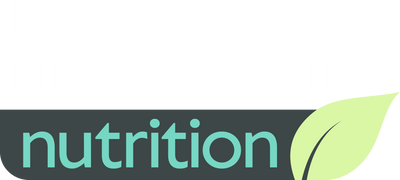Blood pressure measures the force of blood against the walls of the arteries as the heart pumps it throughout the body. It plays a crucial role in overall health, influencing the risk of cardiovascular diseases. High blood pressure, or hypertension, can lead to severe complications such as strokes, heart attacks, and kidney diseases. Conversely, low blood pressure, or hypotension, can cause dizziness and fainting. Maintaining optimal blood pressure through lifestyle adjustments is essential. These adjustments may include dietary changes, such as incorporating foods that reduce joint pain, holistic treatments like castor oil compresses, and adopting plant-based oral care products.
Understanding Hypertension: Causes and Risks
Hypertension, commonly known as high blood pressure, is a major health concern that can lead to severe health complications if not managed effectively.
Causes of Hypertension
- Genetic Factors: Family history plays a significant role.
- Dietary Habits: High salt consumption, fatty foods.
- Physical Inactivity: Sedentary lifestyle increases risk.
- Obesity: Excess body weight strains the cardiovascular system.
- Stress: Chronic stress elevates blood pressure.
Risks Associated with Hypertension
- Heart Disease: Increased risk of heart attack and stroke.
- Kidney Damage: Impairs renal function over time.
- Vision Problems: Can lead to hypertensive retinopathy.
- Cognitive Impairment: Links to dementia and cognitive decline.
Proper understanding assists in preventive measures.
The Role of Diet in Managing Blood Pressure
Proper diet is pivotal in maintaining healthy blood pressure. Key aspects include:
- Reducing Sodium Intake: Too much sodium can increase blood pressure levels. Aim for less than 2,300 mg per day.
- Increasing Potassium: Foods rich in potassium, like bananas, help balance sodium levels.
- Eating Whole Grains: Whole grains can improve heart health.
- Limiting Alcohol: Excessive alcohol can raise blood pressure.
- Consuming Healthy Fats: Monounsaturated and polyunsaturated fats are beneficial.
Specific foods beneficial for blood pressure include:
- Leafy greens
- Berries
- Beets
- Oats
- Fatty fish
- Garlic
- Dark chocolate
- Pomegranates
- Olive oil
- Green tea
These dietary changes support overall cardiovascular health.
Incorporate More Fruits and Vegetables
A diet rich in fruits and vegetables can significantly assist in maintaining healthy blood pressure levels. Prioritize a variety of vividly colored produce which are naturally high in fiber, vitamins, and minerals.
Key Recommendations:
- Leafy Greens: Spinach, kale, and Swiss chard, rich in potassium, help balance sodium levels.
- Berries: Blueberries, strawberries, and raspberries contain antioxidants that support vascular health.
- Citrus Fruits: Oranges, lemons, and grapefruits are high in vitamin C, beneficial for blood vessel function.
- Root Vegetables: Beets and carrots improve nitric oxide levels, enhancing blood flow.
Regular consumption of these foods can contribute to overall cardiovascular health.
Reduce Your Sodium Intake
Reducing sodium intake is crucial for healthy blood pressure. High levels of sodium can cause the body to retain water, leading to increased blood pressure. Here are steps to lower sodium consumption effectively:
- Choose Fresh Foods: Opt for more fresh fruits, vegetables, and lean meats, avoiding processed foods which are often high in sodium.
- Read Labels: Pay attention to sodium content in packaged foods. Look for labels that say “low sodium” or “no salt added.”
- Cook at Home: Preparing meals at home allows better control over how much salt is added.
- Use Herbs and Spices: Instead of salt, season foods with herbs, spices, garlic, and lemon.
By incorporating these habits, maintaining healthy blood pressure becomes more manageable.
Regular Physical Activity: Key to Healthy Blood Pressure
Regular physical activity is crucial for maintaining healthy blood pressure levels. Engaging in moderate-intensity exercises, such as brisk walking, cycling, or swimming, aids in the reduction of systolic and diastolic blood pressure.
Benefits of Regular Physical Activity
- Improves cardiovascular health: Enhances blood flow and strengthens the heart.
- Weight management: Assists in maintaining a healthy weight, reducing strain on the heart.
- Reduces stress: Physical activity reduces levels of stress hormones like adrenaline.
- Enhances insulin sensitivity: Aids in the regulation of blood sugar, crucial for overall vascular health.
Recommended Activities
- Aerobic exercises: Running, cycling, swimming.
- Strength training: Weight lifting, resistance exercises.
- Flexibility exercises: Yoga, stretching routines.
Commit to at least 150 minutes of moderate aerobic activity weekly.
Manage Stress Effectively
Managing stress is essential for maintaining healthy blood pressure levels. Prolonged stress can lead to hypertension and other cardiovascular issues. Effective stress management involves:
- Exercise: Regular physical activity, such as walking, yoga, or swimming, helps release endorphins, reducing stress levels.
- Mindfulness practices: Techniques like meditation, deep-breathing exercises, and progressive muscle relaxation can significantly lower stress.
- Healthy diet: Consuming nutrient-rich foods, including some of the 10 foods you need to consume to get rid of joint pain, can support overall well-being.
- Adequate sleep: Ensuring restful sleep each night aids in stress reduction.
- Professional help: Seeking therapy or counseling can provide strategies for coping with stress.
Integrating these practices into one's daily routine can improve both mental and physical health efficiently.
Maintain a Healthy Weight
Excessive body weight can strain the heart and potentially lead to hypertension. Implementing regular exercise and mindful eating habits can be fundamental in managing weight effectively. Consider incorporating these strategies:
- Balanced Diet: Consumption of nutrient-dense foods like fruits, vegetables, lean proteins, and whole grains. Avoiding processed and high-sugar foods can aid in weight management and overall health.
- Regular Physical Activity: Engage in at least 150 minutes of moderate-intensity aerobic activity, or 75 minutes of vigorous activity weekly.
- Maintain Hydration: Adequate water intake supports metabolic processes and reduces over-eating.
- Scheduled Meals: Consistent meal times can prevent overeating and stabilize blood sugar levels.
Tracking progress and making adjustments as needed can be effective in maintaining a healthy weight.
Limit Alcohol Consumption
Limiting alcohol consumption is critical for maintaining healthy blood pressure. Excessive drinking can lead to hypertension and other cardiovascular issues.
Recommended Guidelines
- Men: No more than two drinks per day.
- Women: No more than one drink per day.
- Older Adults: Even lower limits due to increased sensitivity.
Benefits of Limiting Alcohol
- Immediate: Lower blood pressure after reducing intake.
- Long-term: Reduces the risk of chronic diseases such as heart disease and stroke.
- Overall Health: Improvement in liver function, which complements benefits seen with castor oil compresses for liver health.
Adhering to these guidelines helps sustain overall wellness and contributes to managing blood pressure effectively.
Quit Smoking for Better Heart Health
Smoking significantly elevates blood pressure and heart disease risk. Quitting the habit is vital. Here's why stopping smoking is crucial for heart health:
- Nicotine: Raises blood pressure and heart rate.
- Carbon Monoxide: Reduces oxygen in blood, straining the heart.
- Toxins: Damage artery walls, promoting plaque buildup.
Benefits of quitting include:
- Improved Circulation: Enhances oxygen transport, reducing heart stress.
- Lowered Blood Pressure: Decreases over time post-cessation.
- Better Heart Rhythm: Reduces irregular heartbeats.
Healthcare professionals can assist through:
- Medications
- Support programs
- Lifestyle counseling
Visit "10 foods you need to consume to get rid of joint pain" for dietary advice aligning with heart health.
The Importance of Quality Sleep
Quality sleep is essential for maintaining optimal blood pressure. Poor sleep can lead to increased stress hormones, which elevate blood pressure.
- Adequate sleep helps regulate insulin and inflammation.
- Sleep deprivation links to higher risks of both heart disease and hypertension.
- Consistent sleep patterns support cardiovascular health and overall wellness.
Incorporating relaxation techniques, such as discovering the miracle of castor oil compresses for liver health, can enhance sleep quality. Quality sleep also aids in skin health, linking to how to naturally tighten skin on your face. Adopting these strategies promotes a comprehensive approach to well-being.
Monitor Your Blood Pressure Regularly
Monitoring blood pressure regularly is essential for maintaining cardiovascular health. Frequent checks can help identify patterns or irregularities early, allowing for timely interventions. Devices such as home blood pressure monitors provide convenience. In addition, it is important to document readings consistently and share them with healthcare providers for accurate analysis.
Key considerations include:
- Frequency: Check at different times daily.
- Technique: Sit quietly before measuring; ensure correct cuff size.
- Environment: Measure in calm, consistent settings.
By incorporating regular monitoring, individuals can better manage their health alongside lifestyle adjustments such as optimizing diet, using natural remedies, and exploring holistic wellness practices.
Conclusion: Embracing a Healthier Lifestyle
Adopting a healthier lifestyle involves a multifaceted approach that goes beyond simply focusing on blood pressure. It is important to integrate various aspects of well-being into daily routines.
- Balanced Diet: Including the right foods can help reduce joint pain and improve overall health. For instance, knowing the ten foods you need to consume to get rid of joint pain can be pivotal.
- Natural Remedies: Incorporating natural treatments like castor oil compresses for liver health can yield significant benefits.
- Skin Care: Methods on how to naturally tighten skin on your face are essential for maintaining good skin health.
- Oral Hygiene: Using plant-based toothpaste and mouthwash can enhance oral health without the harmful effects of chemicals.
These strategies collectively contribute to better health outcomes, ensuring a holistic approach to lowering blood pressure and improving overall quality of life.






















